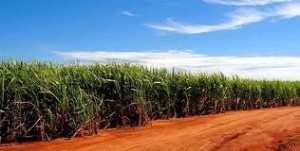Shell (NYSE: RDSA) and Cosan (NYSE: CZZ), one of the world’s largest sugarcane ethanol companies based in Brazil, signed binding agreements to form a $12 billion joint venture for the production and commercialization of ethanol and power from sugar cane. The resulting joint venture, if completed, will be the third largest ethanol producer in the world with 4,500 retail stations and annual production capacity of 2 billion liters (440 million gallons).
This venture gives Shell an opportunity to lower the carbon footprint gasoline which can have ethanol blended to 10 percent and still be supported by the warranties of all major auto makers. Currently Shell is producing more oil from tar sands using environmentally destructive processes that increase the carbon footprint of gasoline, diesel, and jet fuel refined from tar sands crude.
Sugarcane is the currently the most efficient feedstock for larger scale ethanol production. While corn ethanol delivers little more energy output than the total energy necessary to grow, process, and transport it; sugarcane ethanol delivers eight times the energy output as lifecycle energy input. Also, sugarcane typically produces twice as much fuel per acre as corn.
Brazil produces almost as much sugarcane ethanol as the United States produces corn ethanol, but at a fraction of the energy cost. Sugarcane is also grown in the southern U.S., from Florida to Louisiana to California.
Brazil is free from needing foreign oil. Flex-fuel vehicles there get much better mileage than in the U.S. If you drive into any of Brazil’s 31,000 fueling stations looking for gasoline, you will find that the gasoline has a blend of at least 20% ethanol, as required by law. 29,000 of the fueling stations also offer 100% ethanol. Ethanol in the U.S. is normally delivered on trucks, increasing its cost and lifecycle emissions. Brazil’s largest sugar and ethanol group, Cosan SA announced the creation of a company to construct and operate an ethanol pipeline.
Most sugarcane is grown in the southern state of Sao Paulo. Economics do not favor its growth in rain forests, although those who favor blocking its import make that claim. It is cattle, soy, palm oil, logging, and climate change that most threaten the rain forests. Some environmentalists are concerned that a significant percentage of Brazil’s sugarcane is grown in the cerrado, which is one of the world’s most biodiverse areas. The cerrado is rich with birds, butterflies, and thousands of unique plant species. Others argue that without sugarcane ethanol, more oil will come from strip mining Canadian tar sands and from a new “gold rush” for oil in the melting artic.
“In addition, the residue of sugarcane ethanol, bagasse, can be used for further energy production. While this may likely be used for generating carbon-neutral electricity, it could also be used in cellulosic biofuel production, potentially generating an additional 400-700 gallons per acre.” (California Low Carbon Fuel Standard Technical Analysis p 87-88)
Sugarcane growers are planning the development of varieties that can produce a larger quantity of biomass per hectare per year. These varieties are being called “energy cane” and may produce 1,200 to 2,000 gallons of ethanol per acre, contrasting with 300 to potentially 500 gallons of ethanol from an acre of corn. Sugarcane ethanol is currently the low-cost winner of biofuels.
Advanced Biofuels
Shell will contribute its 16% equity interest in Silicon Valley-based advanced biofuels company Codexis (NASDAQ: CDXS) to the new Cosan JV with the goal of deploying next generation biofuels technologies in the future. Codexis has a multi-year research & development partnership with Shell to develop advanced biofuels from non-food based biomass including sugarcane stalks.
The proposed joint venture, which still requires regulatory approval, will produce and commercialize ethanol and power from sugar cane and distribute a variety of industrial and transportation fuels through a combined distribution and retail network in Brazil. It will also explore business opportunities to produce and sell ethanol and sugar globally.
With annual production capacity of over 2 billion liters, the proposed joint venture will be one of the world’s largest ethanol producers. The inclusion of Shell’s equity interests in Iogen Energy and Codexis would enable the joint venture to deploy next generation biofuels technologies in the future. The company will also generate electricity from sugar cane bagasse in cogeneration plants at all mills. Ten cogeneration plants are already operational.
With total annual sales of about 18 billion liters of fuels, the proposed joint venture will have a competitive position in the Brazilian fuels distribution market built upon a network of about 4,500 retail sites.
Shell is also investing and partnering in other advanced biofuel ventures. Shell is a venture investor in Virent Energy Systems which converts plant sugars directly into a range of high performance liquid transport fuels such as biogasoline. Shell also has a joint venture Cellana in Hawaii that is developing a small pilot facility to grow marine algae and produce vegetable oil for conversion into biodiesel.

